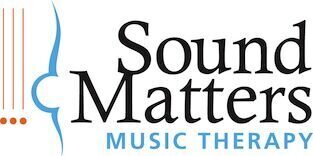On Mondays, I will be writing up a short, non-academic review of an article I’ve found interesting. These articles will be taken from music therapy literature.
Tonight, I’m writing about another article I found in imagine.
I presented to a group of mothers who have children with delayed speech, and the title of this piece stood out to me because of my experience presenting to that particular audience. And, because I heard the most recent episode of “The Music Therapy Show with Janice Lindstrom” (of Heartbeat Music Therapy), which was an interview with music therapist Roia Rafieyan (whose blog is Contemplative Music Therapist), I am even more interested in meeting clients where they are, whether or not they are able to communicate verbally or otherwise.
“Possible Effects of Music Therapy on the Building Blocks of Communication”
Debra Jelinek Gombert, MA, MT-BC imagine 2(1), 2011, 31-33
I thought the Theory section of the article was interesting.
According to speech language pathologist James MacDonald, a child’s interactive life has these three components:
- Social Play — interacting with another with no goal other than being with each other
- Imitation — acting and communicating like others, spontaneously learning from the surrounding world, and
- Reciprocal Turn-Taking — having the habit of give-and-take in a related meaningful manner (pg. 31).
The protocol used in this study included the use of hello songs, goodbye songs, and four pre-composed songs that used scarves, shakers, drums, and sounds. The object of the study was to determine whether a communicative effort would be extended by the client.
Following the four-week study, mothers of the clients wrote that they saw an increase in their children’s turn-taking, imitation, imaginative play, and other positive aspects of interaction.
Certainly I do not do the article justice with this very brief review. My interest in developing communicative behaviors and/or speech is ever-growing; I’m working with children and adults who use little to no speech at all.
I found Roia Rafieyan’s interview on Janice Lindstrom’s show to be inspiring. Two pieces I remember are that she said about ninety percent of her job is hearing (or listening, I can’t remember her word — there is quite a distinction between “hearing” and “listening”), and another being that she is most interested in knowing how her clients are, not in trying to get them to do something.

